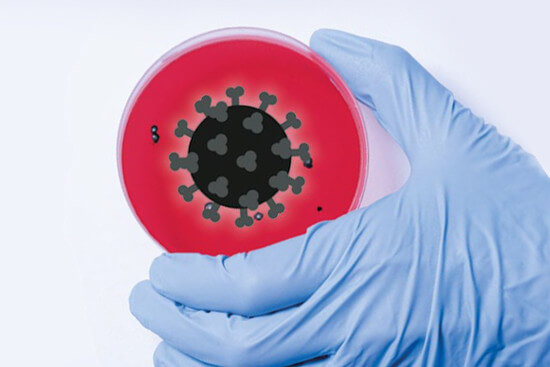Corona: animal experimentation and animal-free methods
Corona vaccines: despite animal testing, not because of animal testing
A significant number of animal testing proponents claim that animal testing was crucial to the alleged success of the corona vaccines. In fact, the opposite is the case: the rapid development of corona vaccines is an important proof of how inefficient and unnecessary animal testing is. We call for a paradigm shift to human-relevant, animal-free methods so that the development of important drugs and vaccines can be faster, safer, and more reliable in the future.
During the peak of vaccine development in 2020, the manufacturers of three vaccine candidates against COVID-19 have reported initial successes in large-scale studies involving thousands of people. Some animal testing proponents claim that this success is due to animal testing. When looking closely, it becomes clear though that animal testing has not contributed to the development and effectiveness of these vaccines.
All drug and vaccine candidates are normally, as required by law, tested in a full range of animal studies before being tested on humans. However, since the usual animal tests are too time-consuming and experience has shown that they are too unreliable for the acute situation that the corona crisis presented, some animal tests were shortened, skipped, or carried out simultaneously to the clinical phase tests in humans. The vaccine candidates developed by the German company BioNTech and the American company Moderna were tested on monkeys after hundreds of test persons had been administered the vaccines. BioNTech tested four vaccine candidates on humans and, based on the data collected, decided on the existing vaccine candidate, which reveals the expandability of the results collected later in monkey tests. The vaccine candidates were tested in mice and rats just before the first human trials to gain regulatory approval for clinical trials in humans. However, a protective effect against infection with the coronavirus could not be shown, since neither mice nor rats can naturally be infected with the virus. The fact that animal experiments were carried out on the basis of outdated laws is no proof of their alleged indispensability and necessity.
It is not very surprising that animal testing has not been given a high priority in drug and vaccine development against the coronavirus, since around 95% of the drugs that work in animals fail in humans. In addition, to our knowledge, there is no other animal species that develops the complex COVID-19 symptoms observed in humans. While some proponents of animal testing threaten with frightening claims that there would be no corona vaccine without animal testing, the very rapid development of several corresponding vaccines was only possible because many of the usual animal tests were skipped.
The need for and the development of animal-free, human-relevant research methods are increasing worldwide. Currently, human tissue and/or 10 human mini-organs, so-called organoids, can be infected with the SARS-CoV-2 virus, providing important information on the effects of the virus on the human organism. A program to test corona vaccines using multi-organ chips was launched in the USA. Complex computer models are also used to analyse the putative effectiveness of other drugs against the coronavirus and to evaluate vaccine candidates. Many important insights about the corona virus were gained in these models. Ultimately, the development of the vaccine candidates celebrated today is based on such methods and on patient data.
Less than 1% of public funding in Germany is invested in these modern, human-relevant methods, while the remaining 99% flow into animal-based experiments. We demand a reallocation of funding and the legal recognition of animal-free systems as test methods in drug development instead of the outdated animal experiments. This is the only way to develop effective and safe medicines and vaccines faster and more reliably in the future.
26 November 2020
Dr. rer. nat. Dilyana Filipova
Further Information
References
- Jarrod Bailey: A ‘shortage’ of animals for labs will help, not hinder, a COVID-19 research. Pittsburgh Post-Gazette, 18.11.2020
- Pfizer and BioNTech announce data from preclinical studies of mRNA-based vaccine candidate against COVID-19. Pfizer 09.09.2020
- Covid-19. BioNTech

